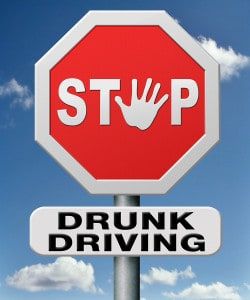 Picture a world free of drunk driving and its resulting injuries and fatalities. With 10,000 drunk driving-related deaths occurring each year, it’s hard to imagine, but with the development of innovative in-car technology, we’re a little closer to putting an end to drunk driving.
Picture a world free of drunk driving and its resulting injuries and fatalities. With 10,000 drunk driving-related deaths occurring each year, it’s hard to imagine, but with the development of innovative in-car technology, we’re a little closer to putting an end to drunk driving.
One of the three goals of Mothers Against Drunk Driving’s (MADD) Campaign to Eliminate Drunk Driving is to secure the future by supporting the development of the Driver Alcohol Detection System for Safety (DADSS), an in-car technology that would stop drivers from operating a car if drunk. Similar to an ignition interlock, the car won’t start if the driver’s blood alcohol content (BAC) is at or above the legal limit of 0.08.
We know what you’re thinking: Will every driver, even those who never get behind the wheel after drinking, have to submit to a breathalyzer test every time they want to drive? Nope! DADSS researchers and developers are currently studying two methods that aren’t invasive to drivers: a touch-based system and an air-sampling system. The touch-based system would read drivers’ BAC through their fingertips while the air-sampling system would isolate and test the breath exhaled by the driver.
Additional research is being done to determine the effectiveness and accuracy of measuring BAC through technology other than a breathalyzer. Research does show that car breathalyzers, or ignition interlocks, are the best method for preventing people from driving while impaired. Car breathalyzers are only required for drivers convicted of DUI and are completely paid for out of the offenders’ pockets. The cost of DADSS is unclear, but it’s likely that car prices or taxes could increase to help pay for installing the new technology in every car when manufactured.
Interlocks are also versatile. They’re not required for every driver, but anyone can install a car breathalyzer device voluntarily, whether to prevent themselves from drinking and driving or to monitor a teen driver’s driving behaviors. We encourage anyone who thinks they might be at risk for drunk driving to install the device to protect themselves and others on the road.
Most importantly, we know that car breathalyzers work. According to the Centers for Disease Control and Prevention (CDC), breathalyzers reduce rearrest rates among drunk driving offenders by 67% while MADD reports that states with all-offender interlock laws have reduced drunk driving fatalities by at least 30%. Arizona and Oregon, two of those states, have decreased drunk driving fatalities by as much as 43% and 42%, respectively.

 9 Reasons Why Being a Designated Driver is Unbelievably Cool
9 Reasons Why Being a Designated Driver is Unbelievably Cool